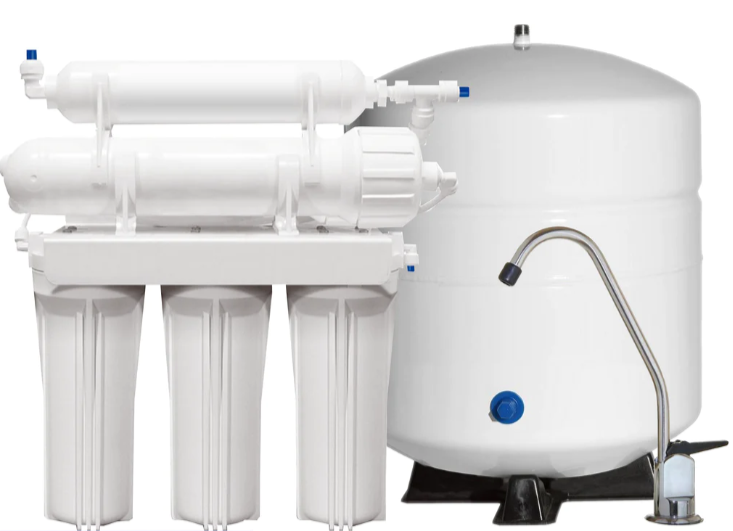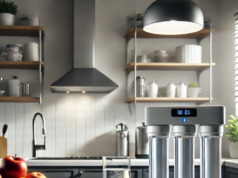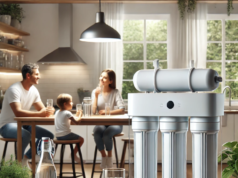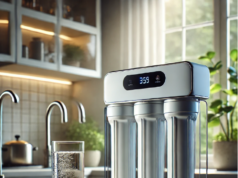Contents
How to Extend the Lifespan of Your Pool Filter
Maintaining a clean and efficient swimming pool is essential for a refreshing and enjoyable experience. One crucial component in achieving this is the **pool filter**. By understanding how to properly care for your **pool filter**, you can significantly extend its **lifespan**. In this guide, we will explore effective methods for upkeep and maintenance, ensuring your **pool filter** operates optimally for years to come.
💧 = Use the coupon code SALEG3P800 to save $150 OFF on the 800GPD Tankless RO System with UV Sterilizing Light – Waterdrop G3P800 = 💧
Understanding Your Pool Filter System
Your pool filter is crucial for maintaining clean and clear water. Understanding the different types of pool filters—such as sand, cartridge, and diatomaceous earth (DE)—can help you better manage their maintenance and lifespan.
Types of Pool Filters
- Sand Filters
- Cartridge Filters
- Diatomaceous Earth Filters
Regular Maintenance Practices
Routine Cleaning
Regular cleaning of your pool filter is essential. This includes backwashing for sand filters and cleaning or replacing cartridges for cartridge filters. Proper cleaning can significantly enhance the filter’s performance and longevity.
Check and Maintain Water Chemistry
Proper water chemistry helps reduce the strain on your filter. Regularly check the pH, alkalinity, and chlorine levels. Keeping these balanced can prevent contaminants that may clog your filter.
Upgrading Components
Invest in Quality Filter Components
Using high-quality replacement parts can prolong your filter’s lifespan. Over time, cheap parts may lead to more significant issues and more frequent replacements.
Consider a Timer System
Installing a timer can help you manage your filter run times efficiently. This not only saves energy but also reduces wear and tear on your system.
Optimal Operating Conditions
Run Your Pump Efficiently
Ensure your pool pump runs for the right amount of time, ideally 8-12 hours a day based on your pool size. This helps maintain proper circulation, allowing the filter to work optimally.
Keep Surrounding Areas Clean
Regularly cleaning your pool deck and surrounding areas reduces debris and contaminants that can enter the pool, thereby reducing strain on your filter.
Seasonal Maintenance Tips
Winterizing Your Pool Filter
If you live in a climate with colder winters, appropriate winterization of your pool and filter helps prevent damage. Follow guidelines specific to your filter type for best results.
Spring Opening Checks
When you open your pool in spring, check your filter for any signs of damage or wear. Replace necessary parts to ensure your pool is ready for the season.
Conclusion
By implementing regular maintenance practices and being mindful of your filter’s operating conditions, you can significantly extend the lifespan of your pool filter. For more detailed tips on pool maintenance, check out our comprehensive pool maintenance guide.
💧 = Use the coupon code SALEG3P800 to save $150 OFF on the 800GPD Tankless RO System with UV Sterilizing Light – Waterdrop G3P800 = 💧
Shop now for Waterdrop N1
FAQs: How to Extend the Lifespan of Your Pool Filter
1. How often should I clean my pool filter?
You should clean your pool filter every 4 to 6 weeks, depending on usage and debris levels. Regular cleaning prevents clogging and maintains efficiency.
2. What type of pool filter should I choose for longevity?
Choosing a high-quality filter—such as a sand, cartridge, or diatomaceous earth filter—can impact longevity. Research options based on your pool’s size and usage.
3. How do I know when my pool filter needs replacement?
Signs that your filter may need to be replaced include a decrease in water clarity, increased pressure readings, and visible damage or wear on the filter elements.
4. Should I backwash my sand filter regularly?
Yes, backwashing your sand filter every 4 to 6 weeks ensures that it runs efficiently. Check your pressure gauge; if the pressure is 8-10 psi higher than normal, it’s time to backwash.
5. Can I use chemicals to extend my filter’s lifespan?
Using chemical cleaning solutions specifically designed for pool filters can help eliminate dirt and contaminants, thus extending the lifespan of your filter. Always follow manufacturer guidelines.
6. What maintenance tasks should I perform regularly?
Regular maintenance includes checking water chemistry, cleaning the skimmer and pump basket, and inspecting hoses and fittings for leaks. These practices can reduce strain on your filter.
7. Is it important to replace filter cartridges?
Yes, replacing filter cartridges according to the manufacturer’s recommendations is crucial. Worn or clogged cartridges can reduce filtration effectiveness and strain your pool system.
8. How does water chemistry affect my filter’s lifespan?
Poor water chemistry can lead to corrosive effects and faster wear on your filter. Regularly checking and balancing pH, alkalinity, and chlorine levels will help maintain filter health.
9. Can the location of my pool affect filter lifespan?
Yes, pools located in areas with high debris, such as trees or dirt, may require more frequent cleaning and maintenance. Consider installing windbreaks or pool covers to minimize debris.
10. What is the average lifespan of a pool filter?
The average lifespan of a pool filter varies: sand filters can last 5-7 years, cartridge filters typically last 2-5 years, and diatomaceous earth filters can last 7 years or more with proper maintenance.
Feel free to add any additional styles or scripts as needed!
Regular Maintenance Practices
To ensure your pool filter operates efficiently for years, regular maintenance is essential. Comprehensive cleaning and periodic backwashing can significantly affect its lifespan.
Cleaning the Filter
Cleaning the filter should be a routine task. Depending on your filter type, this could mean rinsing or replacing the filter element. Keeping the filter free from debris and buildup will enhance its performance.
Checking Water Chemistry
Proper water chemistry is crucial. Maintaining balanced pH levels and adequate chlorine can prevent damage to the filter media. Regular testing will help you keep track of your pool’s water quality.
Choosing the Right Filter Type
Each pool filter type—sand, cartridge, or diatomaceous earth—has its own strengths. Choosing the right one for your pool can ease maintenance and extend its lifespan.
Sand Filters
Sand filters are popular for their durability and low maintenance needs, making them a great choice for many pool owners.
Cartridge Filters
Cartridge filters require less water for cleaning and can be less complicated to maintain, contributing to a longer lifespan.
Proper Installation and Usage
Ensuring your filter is correctly installed can prevent many common issues. Following the manufacturer’s guidelines during installation is key.
Avoiding Overuse
Overusing your filter can lead to quick wear and tear. Adhering to recommended filtration times will help to extend its operational life.
For more information about pool maintenance and filtration systems, visit the Wikipedia swimming pool page.
How to Extend the Lifespan of Your Pool Filter
-
Regular Cleaning
- Clean the filter regularly to prevent buildup.
- Backwash sand and DE filters as needed.
-
Monitor Water Chemistry
- Maintain proper pH, chlorine, and alkalinity levels.
- Avoid chemical imbalances to reduce strain on the filter.
-
Check for Blockage
- Inspect skimmer and pump baskets for debris.
- Clear any clogs to improve water flow.
-
Proper Installation
- Ensure filters are installed according to manufacturer guidelines.
- Avoid overloading the filter beyond its capacity.
-
Seasonal Care
- Winterize the filter properly if not in use.
- Perform thorough maintenance at the beginning of the swimming season.
💧 = Use the coupon code SALEG3P800 to save $150 OFF on the 800GPD Tankless RO System with UV Sterilizing Light – Waterdrop G3P800 = 💧
Category – Reverse osmosis and filters





































